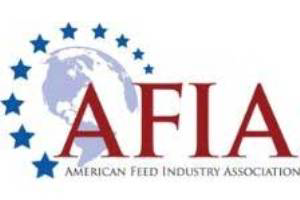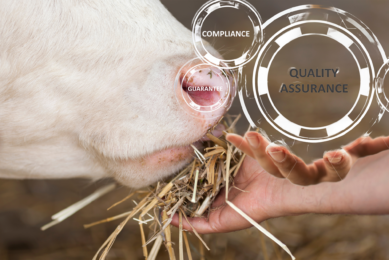AFIA applauds Senate for passing 2014 Farm Bill

The American Feed Industry Association is pleased with the Senate’s passage of the five-year 2014 Farm Bill. “After the lengthy wait, as it took nearly three years to enact, AFIA is satisfied that Congress included and preserved its priorities as part of the omnibus agriculture legislation,” said AFIA President and CEO Joel G. Newman.
“While we wish the process of moving a Farm Bill from committee mark-up to presidential signature had been free of unrelated politicking, we nonetheless applaud the House and Senate agriculture committees—particularly the leadership of chairs Rep. Frank Lucas (R-Okla.) and Sen. Debbie Stabenow (D-Mich.)—for the innovation included in this bill and the leadership it took to get it enacted.”
“AFIA rests satisfied this Congress will dedicate more than $600 million in mandatory funding to vital basic and applied animal health and disease research, as well a crop protection, beginning farmer and various USDA research programmes,” commented Steve Kopperud, AFIA’s government affairs consultant. “AFIA was also pleased to see the inclusion of the new public/private matching funds research initiative.”
Permanent livestock disaster assistance is critical to animal agriculture and Congress is to be commended for ensuring the commercial feed industry is integral to delivery of emergency livestock assistance, and that the Department of Agriculture will no longer use feed assistance as a means to rid of surplus commodities.
The trade title of the 2014 omnibus farm legislation includes full authorisation of annual funding at $200 million for the Market Access Program and $34.5 million for the Foreign Market Development programme. MAP, a programme administered by USDA’s Foreign Agricultural Service forming partnerships between industry associations and businesses to divide costs of overseas marketing and promotional activities, has increased U.S. agricultural exports by more than 400% since the programme’s creation in 1985.
Critical to the evolution of alternative fuels in the US is the development of non-food crop feed stocks for plant-based biomass fuels. The 2014 Farm Bill energy title not only increases this research initiative, it maintains vital USDA biofuels assistance programs built to move the U.S. biofuels industry away from feedstock’s which compete with the feed and food industries.
The House and Senate agriculture committees are to be recognised for streamlining USDA’s conservation programs. Early on in the development of this Farm Bill, both committees embraced elimination of redundant or out-of-date programmes—reducing through repeal or combination 23 federal conservation programs into just 13—and reducing the Conservation Reserve Program acreage cap from 32 million acres to 23 million acres. The committees also more precisely defined environmentally sensitive land for enrolment in the CRP, an improvement a long time coming.
AFIA is gratified Congress again recognized restrictions sought by animal rights groups on US animal agriculture’s ability to remain competitive and maintain domestic and international sales while continually enhancing animal wellbeing have no place in this Farm Bill.
“As we look forward, AFIA urges the president to sign off on the 2014 Farm Bill. Timely enactment of the legislature will provide the feed industry, as well as agriculture across the board, with the safety net it has been lacking for far too long,” said Newman.











